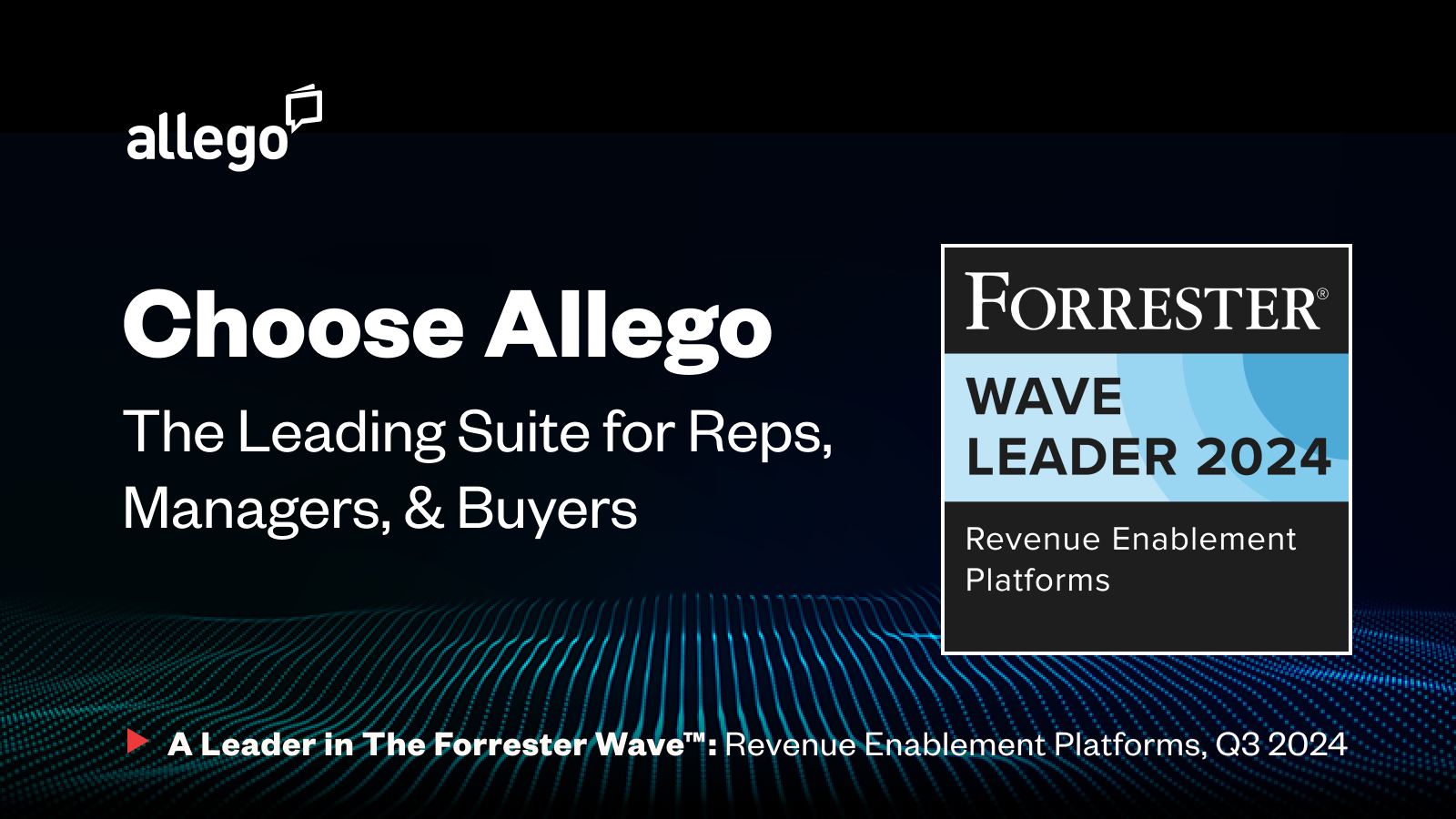New Research Shows Coaching Will Play a Huge Role in Pandemic Recovery

The pandemic has ratcheted up the level of uncertainty for almost every aspect of business including staffing levels, budgets, buyer engagement, supply chain management and more. Many companies are also operating in a hybrid situation, with employees working both remotely and in the office.
Before the pandemic, a mere 15% of companies said that more than half of their workforce was remote. More than twice as many companies believe half or more of their workers will be remote once their return-to-work strategies roll out.
As organizations completely rethink their remote work strategies, scores of managers have had to figure out how to communicate, collaborate, and coach with large, dispersed teams.
Research from Allego and Brandon Hall Group shows that coaching and mentoring are now more important than ever—but it is increasingly difficult to do so effectively. Companies need new tools and strategies to tackle leadership, coaching, and mentoring at scale in a hybrid work world.
>> Get complete research findings here: Leading and Coaching at Scale in a Remote World
Few Companies Have Well-Defined Return-to-Work Strategies
The pandemic already has had a negative impact on employee engagement and the effectiveness of sales teams. One of the challenges to making this adjustment is that there is no single timeline for how soon companies will decide what their return-to-work strategy is. Only about 14% of companies say their strategy has been fully implemented. Others will decide in late 2021 or beyond, and 23% still don’t have a strategy.
The uncertain rollout of return-to work-strategies, plus the fact that only 5% of companies expect their entire workforce to return to the workplace when the strategy is deployed, means that organizations must rethink how they keep their teams engaged, focused and connected.
When we look at what companies believe they must do to recover from the pandemic, many of the people-related strategies include a strong manager / coach element. Of course, there are operational considerations such as determining who works remotely and who doesn’t, but things such as fostering an inclusive workplace, making employees feel valued, and creating a strong sense of belonging require strong coaching skills and tools.
Coaching Will Play a Huge Role in Pandemic Recovery
Providing feedback, coaching and mentoring are all critical elements for pandemic recovery. But the current environment requires an ability to coach and manage people both synchronously (live) and asynchronously (not live).
The increase in remote workers means that not everyone will be expected to keep the same schedules they might have had in the office. People are finding that it’s better for them to get work done in chunks throughout the day—or even the evening or into the night.
Now, organizations that never had to worry about asynchronous communications because everyone was located in one office or time zone are starting to grapple with distance and synchronicity issues, as well.
One of the main challenges, however, is that organizations are unenthusiastic about the current state of their coaching. Merely 30% gave their coaching programs a 4 or 5 on a 5-point scale of
effectiveness. Add in the turmoil of a remote / hybrid / asynchronous environment and things become much more challenging.
The first step is understanding what makes a good coach and ensuring that remote coaches have the tools and training they need to be effective. Coaches and managers in remote environments require access to asynchronous and virtual tools. One invaluable tool is video.
Teachers Insurance and Annuity Association of America-College Retirement Equities Fund (TIAA), an Allego customer, is one example of the successful use of video for onboarding. TIAA radically changed their salesforce onboarding program from a three-week, in-person program to a virtual program spread out over five weeks.
TIAA rolled out short, focused touchpoints for new hires, an hour or two at a time. This includes 20-minute primer videos that prepare everyone for virtual synchronous training sessions. These asynchronous videos get everyone on the same page and boost engagement and collaboration in the virtual sessions. They are followed up with additional, asynchronous content for people to complete at their own pace.
Key Considerations for Managing Remote Teams
Research shows that the pandemic indelibly impacted employee engagement. Coaches and managers are on the front lines of rebuilding that engagement, especially when many more employees will be working remotely than before the pandemic.
Brandon Hall Group’s research, interviews, and case studies around employee engagement, reveals these top five most important actions companies can take to overcome the impact of the pandemic:
- Create an atmosphere of trust.
- Hold leaders more accountable for driving the organization’s mission and values.
- Improve the effectiveness of leadership development.
- Enable teamwork and collaboration.
- Coach leaders to actively foster employee engagement.
Technology will be the key to successfully leading remote teams, especially at any kind of scale. As teams grow larger and more dispersed, it becomes even harder for coaches and leaders who are already stretched thin to manage them. By leveraging technology in the right ways, synchronous, one-on-one “check-ins” can be more meaningful and strategic.
Other things to consider about making the most of coaching check-ins:
- Leverage coaching check-ins to discuss development opportunities and career advancement.
- Provide coaching feedback tips and checklists for both managers and employees.
- Use technology to ensure managers and employees are on the same page before the check-in meetings.
- Find the right balance: Don’t abandon, but don’t micromanage.
Learn More
Download your copy of Leading and Coaching at Scale in a Remote World for key research findings from Allego and Brandon Hall Group to help you thrive in this new environment.



